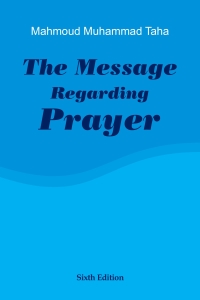Prayer as a Means
The means is always of the same nature as the end; it is an extension of it, differing in degree but not in kind. Proper means must align with proper ends, as no sound reasoning can endorse seeking righteous ends through corrupt means.
The prescribed prayer, performed in its familiar movements and at its designated times, is a means to reach the state where the individual attains a complete and encompassing connection with their Lord. The Qur’an in this regard leaves no room for ambiguity; its statements are decisive and clear. Consider His words: “And establish prayer. Indeed, prayer prohibits immorality and wrongdoing, and the remembrance of Allah is greater. And Allah knows that which you do” (29:45).
Reflect also on: “And establish prayer for My remembrance” (20:14). Here, as in the previous verse, the remembrance of Allah signifies presence with Him without heedlessness, and its means is prayer.
Furthermore, He states: “So remember Me; I will remember you. And be grateful to Me and do not deny Me. O you who have believed, seek help through patience and prayer. Indeed, Allah is with the patient” (2:152-153).
In this context, patience refers to fasting, and the assistance sought through fasting and prayer is in overcoming the natural tendency to be heedless of Allah. This underscores that prayer is a means to remember Allah without lapses in consciousness.
To His Prophet, Allah commands: “So be patient over what they say and exalt with praise of your Lord before the rising of the sun and before its setting; and during periods of the night and at the ends of the day, that you may be satisfied. And do not extend your eyes toward what We have given to some categories of them to enjoy, the splendor of worldly life by which We test them. And the provision of your Lord is better and more enduring” (20:130-131). Here, "exalt" signifies prayer. The verse outlines the five daily prayer times: before the rising of the sun (Fajr), before its setting (Dhuhr and Asr), the ends of the day, and during the periods of the night (Maghrib and Isha). It also includes remembrance and glorification of Allah.
The phrase “that you may be satisfied” clearly establishes prayer as a means to attain contentment. Satisfaction in Allah as Lord stems from complete knowledge of Him, and complete knowledge results from uninterrupted and mindful remembrance. Being content with Allah as one’s Lord entails abandoning wishes. Hasan ibn Ali is known to have said: “Whoever trusts in Allah’s choice for them will not wish to be in any state other than the one they are in.”
Thus, the verse advises: “And do not extend your eyes toward what We have given to some categories of them to enjoy, the splendor of worldly life by which We test them. And the provision of your Lord is better and more enduring” (20:131). This means: Do not wish for what others possess; be content with what Allah has apportioned for you, trusting in His wisdom. Seek assistance in cultivating this state of satisfaction through prayer.

